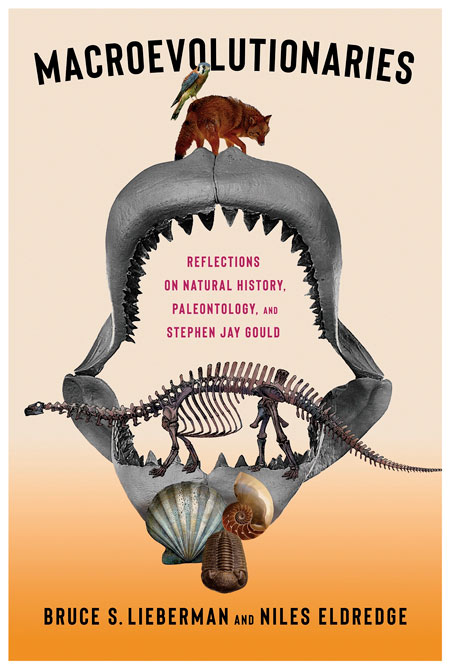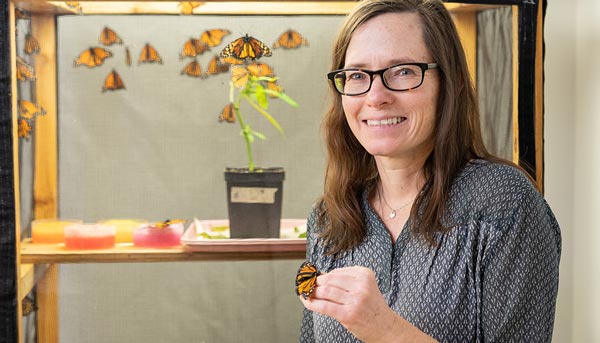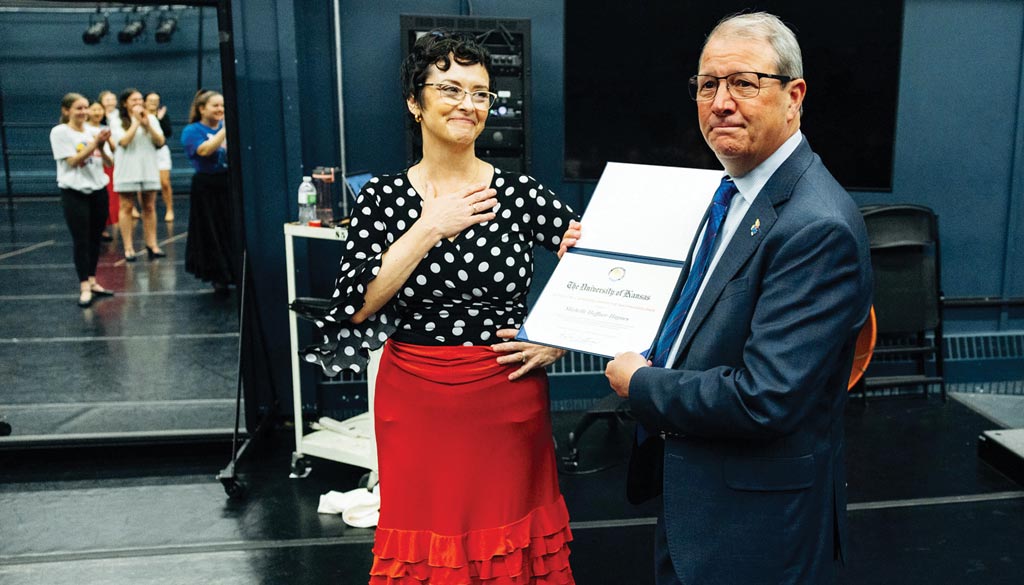KU evolutionary biology professor reflects on renowned scientist
New book of essays ponders evolution’s implications in the spirit of Stephen Jay Gould.
Evolution, it seems, has always been on our minds—for curiosity’s sake, at least, if not highbrow study of the human condition—and for the deepest insights, many of us turned to the late Stephen Jay Gould, evolutionary biologist of the highest order with a rare talent for writing for broad audiences.
Along with his stacks of scientific honors, Gould, who spent much of his career at Harvard University, won a MacArthur Fellowship, a National Book Award and the National Book Critics Circle Award; he hosted his own PBS “Nova” special and was a featured voice on Ken Burns’ “Baseball” series.
The anchor of his public commentary, however, was his renowned and beloved “This View of Life” essay series in Natural History magazine, through which Gould dove deeply into evolutionary topics on his mind at a given moment while always respecting his popular audience. Colleagues could be reached and influenced via academic journals and international conferences; the everyday folks, though, were an audience with whom few others of his stature could reliably relate.
It was in Gould’s spirit of rigorous science presented without pretense that Bruce Lieberman, Dean’s Professor of Evolutionary Biology, senior curator of invertebrate paleontology and director of the Paleontological Institute at KU’s Biodiversity Institute and Natural History Museum, joined with fellow invertebrate paleontologist and evolutionary biologist Niles Eldredge to write Macroevolutionaries: Reflections on Natural History, Paleontology, and Stephen Jay Gould, a book of essays, published in September by Columbia University Press, honoring their mentor, who died in 2002.

“His essays were designed to be accessible,” Lieberman told KU News Service writer Brendan Lynch, g’22, “and discussed interesting issues in natural history, paleontology and evolution. Niles and I are trying to revive the natural history essay for a new audience and generation, focusing on paleontology, science, popular culture, music and art.”
One of the book’s charms is evident at its outset: In the opening paragraphs of the preface, the authors reference both the comedic actor Super Dave Osborne and “Steve” Gould, signaling that we are setting off on an insider’s journey into topics near and dear to the great public intellectual. Eldredge attended graduate school with “Steve” Gould and was a lifelong collaborator, and Lieberman had Gould as both his undergraduate adviser at Harvard and career mentor.
“Although we don’t always ask or answer the toughest questions,” the authors write, “such as ‘What did Beavis and Butt-Head think of Elisabeth Vrba’s turnover pulse hypothesis?’ and ‘What city has the best natural history museum?,’ we do ask and answer some pretty tough ones, like ‘What did Elisabeth Vrba think of Beavis and Butt-head?’ and ‘What city has the best pizza?’”
Vrba, a Yale University paleontologist, was, along with Eldredge and Gould, a member of the trio that Gould dubbed the Three Musketeers; as told in Macroevolutionaries, the famous fourth Musketeer, D’Artagnan, is represented by Lieberman, who, after the good fortune of having Gould guide his undergraduate career, had Eldredge as his doctoral adviser and served his postdoctoral fellowship with Vrba. All four have focused their research “in the arena of macroevolution, the subdiscipline dedicated to studying the major features in the history of life and understanding their relevance to evolutionary biology.”
Macroevolutionaries gently guides lay and expert audiences through a tour of the Four Musketeers’ investigations into such foundational principles as punctuated equilibria (the theory that species tend to remain stable over long periods of time, but once change begins, it can transpire, within geologic measures, relatively quickly), mass extinctions, the fossil record and the history of life.
As seen in briefly furious attempts, in 1999, to amend the teaching of Darwinian evolution in Kansas public schools, evolution remains both foundational and controversial. Inquiring minds can now turn to a charming, insightful road map of essays through which some of the topic’s great thinkers and their great ideas are presented, all in great fun.
“In our book,” Lieberman told KU News, “we aimed to show how developments in music, for example, can be analogous to how we understand biology, or how phenomena in distant stars can affect patterns of extinction on Earth. We wanted to make these connections clear. We also aimed to keep the book light and humorous.”
Chris Lazzarino, j’86, is associate editor of Kansas Alumni magazine.
/




